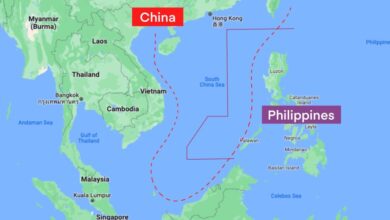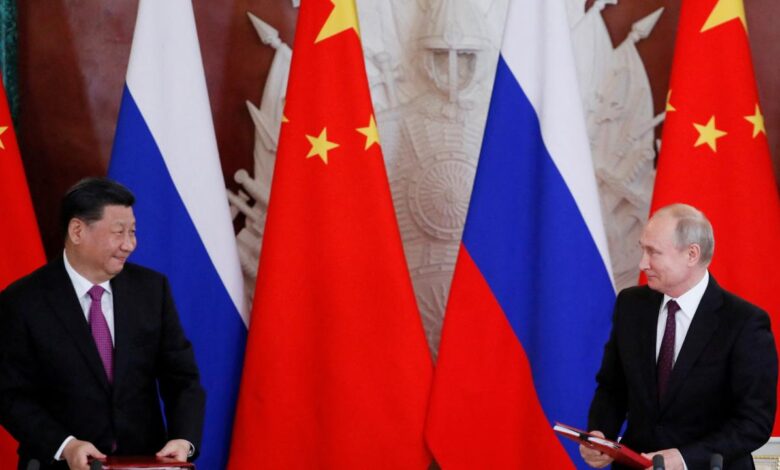
China Uses Russia as a Wrecking Ball
China Uses Russia as a Wrecking Ball – that’s a bold statement, isn’t it? It paints a picture of a deliberate strategy, where China leverages Russia’s aggressive actions for its own geopolitical gain. But is it accurate? This isn’t just about a simple alliance; it’s a complex dance of economic interdependence, strategic risk, and shifting global power dynamics.
We’ll delve into the intricacies of this relationship, exploring the benefits and potential pitfalls for China, and examining how the world perceives this increasingly important partnership.
We’ll look at the economic ties binding China and Russia, analyzing the flow of goods and services and exploring how sanctions against Russia impact China. We’ll also examine the geopolitical implications, considering how this relationship affects international relations and shapes public opinion globally. The military and security aspects will be explored, looking at potential threats and the strategic significance of military cooperation.
Ultimately, we aim to unpack this controversial metaphor and offer a nuanced understanding of the complex reality.
International Relations and the “Wrecking Ball” Effect
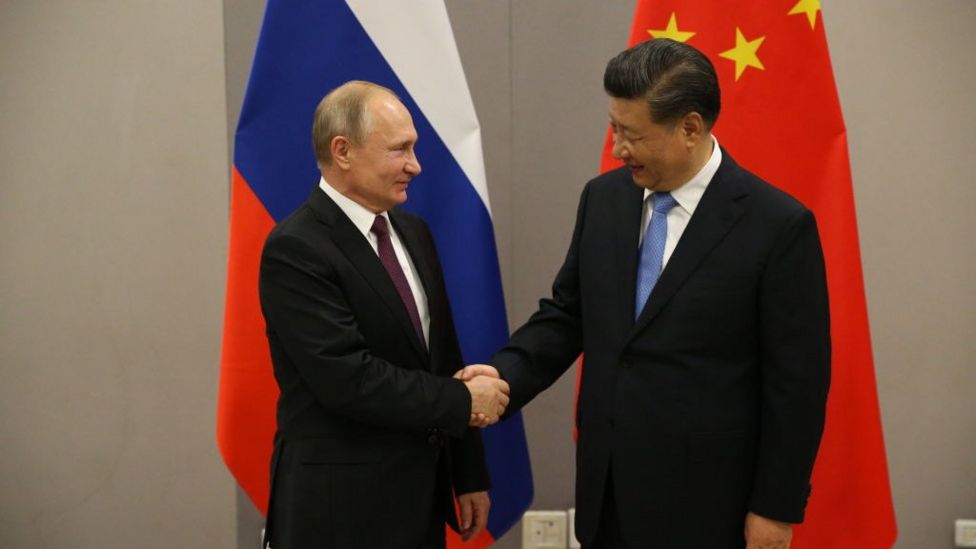
The characterization of China’s relationship with Russia as a “wrecking ball” in international relations highlights a concerning trend: the potential for this partnership to destabilize existing global order and reshape geopolitical landscapes. This isn’t simply about two nations cooperating; it’s about the implications of their combined influence, particularly considering Russia’s history of assertive actions and China’s growing global power. The “wrecking ball” metaphor emphasizes the disruptive and potentially destructive nature of this alliance, impacting various international relationships and creating uncertainty in global affairs.
Examples of International Relations Affected by the Russia-China Dynamic
The Russia-China partnership significantly impacts various international relations. Their joint military exercises, for instance, challenge the established security architecture in the Asia-Pacific region, prompting concerns among nations like Japan, South Korea, and Australia. Their collaboration on energy projects, particularly in Central Asia, alters regional power dynamics and potentially marginalizes other players. Furthermore, their shared stances on issues like Taiwan and Ukraine directly challenge the existing international consensus and create friction with Western powers.
Their coordinated diplomatic efforts within international organizations like the UN and BRICS further demonstrate their intent to shape global governance according to their shared interests, potentially undermining established norms and procedures. These actions create ripples throughout the global system, affecting trade, security, and diplomatic relations on a broad scale.
Watching China leverage Russia’s aggression is unsettling; it feels like they’re using it as a wrecking ball against the global order. This instability, however, highlights the importance of domestic stability, something that articles like this one on yimby cities show how to build homes and contain rents emphasize. Stable, well-planned cities are crucial – a strong foundation against external shocks, unlike the chaos China’s actions are creating.
Perceptions of China’s Relationship with Russia by Other Nations, China uses russia as a wrecking ball
The perception of China’s relationship with Russia varies significantly depending on a nation’s geopolitical alignment and its own relationship with both China and Russia. Western nations, particularly the US and its allies, view the partnership with considerable suspicion, interpreting it as a threat to the existing liberal international order. Concerns center on China’s potential to leverage Russia’s military capabilities and its willingness to provide Russia with economic support, despite international sanctions.
Watching China leverage Russia’s aggression feels like witnessing a geopolitical demolition derby. It’s a fascinating parallel to how drastically our culture’s shifted, as seen in the impact of weight loss drugs have changed culture , a similarly disruptive force reshaping societal norms. Ultimately, both scenarios highlight the unpredictable consequences of powerful, external forces reshaping the world around us, with China’s calculated use of Russia being just one example of this broader trend.
On the other hand, many nations in the Global South see the partnership as a potential counterbalance to Western dominance, viewing it as an alternative model for international cooperation and economic development. However, even among these nations, there’s a recognition of potential risks associated with aligning too closely with Russia, given its international isolation and history of aggression.
Watching China leverage Russia’s aggression feels like a cynical chess game; they’re using Russia as a wrecking ball against the West, disrupting global stability to their advantage. It makes you wonder, what’s the real-world impact of all this maneuvering? I mean, is it all just a power play, or is there some deeper strategy at work? Sometimes I think about the point of industry awards – like, do they even matter in this larger context?
Check out this article on what is the point of industry awards to get a different perspective. Ultimately, China’s use of Russia as a wrecking ball highlights a disturbing trend in global geopolitics.
Timeline of Key Events Supporting the “Wrecking Ball” Metaphor
Several key events illustrate the “wrecking ball” effect of the China-Russia relationship.
- 2014: Russia’s annexation of Crimea and the subsequent Western sanctions. China’s refusal to condemn the annexation and its continued economic cooperation with Russia demonstrated a willingness to challenge the established international order.
- 2022: Russia’s full-scale invasion of Ukraine. China’s refusal to condemn the invasion and its continued support for Russia further solidified the perception of a strategic partnership willing to disregard international norms.
- Ongoing: Joint military exercises and technological cooperation between China and Russia. These activities actively challenge the security architecture of the Asia-Pacific region and potentially beyond.
- Ongoing: China’s increasing economic and diplomatic engagement with Russia, despite international sanctions. This ongoing support undermines the effectiveness of Western sanctions and reinforces Russia’s ability to sustain its actions.
Influence of the “Wrecking Ball” Phrase on Global Perceptions of China’s Foreign Policy
The “wrecking ball” metaphor powerfully shapes global perceptions of China’s foreign policy. It emphasizes the disruptive and potentially destructive potential of the China-Russia partnership, moving beyond the notion of simple cooperation to suggest a deliberate strategy to undermine existing international structures. This portrayal fuels concerns about China’s long-term ambitions and its willingness to use its growing power to reshape the global order in a manner that many see as unfavorable.
The metaphor highlights the potential for increased geopolitical instability and reinforces the perception of China as a revisionist power challenging the established international norms and rules-based system. This perception, regardless of its accuracy, significantly influences how other nations interact with and strategize against China.
Public Opinion and the “Wrecking Ball” Narrative: China Uses Russia As A Wrecking Ball
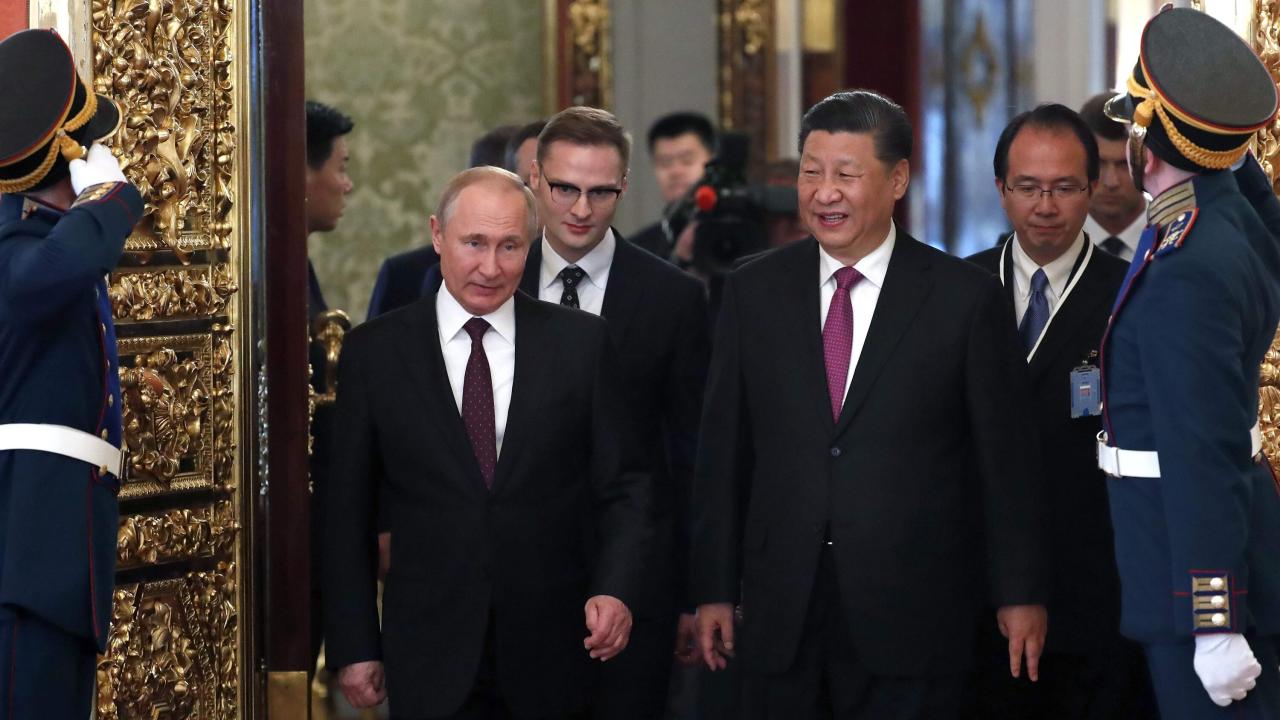
The metaphor of China using Russia as a “wrecking ball” is a powerful one, shaping global perceptions of the Sino-Russian relationship and influencing policy decisions. Its effectiveness, however, varies significantly across different countries, driven by pre-existing geopolitical alignments, domestic political climates, and the selective framing employed by media outlets.The framing of the China-Russia relationship as a “wrecking ball” strategy profoundly impacts public opinion globally.
The image evokes destruction, instability, and a deliberate, malicious intent. This narrative resonates particularly strongly in nations already wary of China’s growing influence or those aligned with the United States, which often promotes this framing. Conversely, in countries more sympathetic to Russia or those seeking to balance Western power, this narrative holds less sway. The interpretation is often filtered through existing geopolitical biases and national interests.
Media’s Role in Shaping the Narrative
Media plays a crucial role in shaping public understanding of the China-Russia relationship. Western media outlets frequently employ the “wrecking ball” metaphor, highlighting instances of alleged Chinese exploitation of Russia’s economic vulnerabilities or its support for Russian actions in Ukraine. This framing often emphasizes the negative consequences for global stability and international norms. Conversely, state-controlled media in China and Russia often present a different narrative, emphasizing mutual benefit and strategic partnership, downplaying any negative aspects of the relationship.
This disparity in media coverage directly contributes to divergent public opinions across different regions. The selective presentation of facts and the choice of language employed significantly influence how audiences perceive the relationship’s nature and implications.
Public Opinion in China and Other Nations
Public opinion within China regarding its relationship with Russia is generally positive, reflecting the official narrative promoted by the state. State media emphasizes the strategic partnership and mutual benefits, often framing the relationship as a counterbalance to Western influence. This is in stark contrast to public opinion in many Western countries, where concerns about China’s intentions and Russia’s actions often dominate the discourse.
Surveys and polls in Western nations frequently show significant distrust of both China and Russia, with the “wrecking ball” narrative contributing to this negative perception. This divergence highlights the influence of media framing and pre-existing geopolitical biases in shaping public opinion.
Potential Counter-Narratives
It is crucial to consider alternative interpretations of the China-Russia relationship beyond the “wrecking ball” narrative. A range of counter-narratives could offer a more nuanced understanding. These include:
- Strategic Pragmatism: China’s engagement with Russia is driven by pragmatic self-interest, seeking to secure resources, technological cooperation, and a counterweight to Western dominance, not necessarily to actively destabilize the international order.
- Economic Interdependence: The relationship is characterized by complex economic interdependence, with mutual benefits and risks. The “wrecking ball” narrative overlooks the intricate web of economic ties and mutual dependencies.
- Regional Stability: The China-Russia partnership, while potentially challenging to the West, might contribute to regional stability in certain areas by providing an alternative power dynamic and potentially mitigating conflicts.
- Limited Scope of Cooperation: The level of cooperation between China and Russia is often exaggerated. While strategic alignment exists on certain issues, significant differences in national interests and priorities remain.
Military and Security Aspects of the Relationship
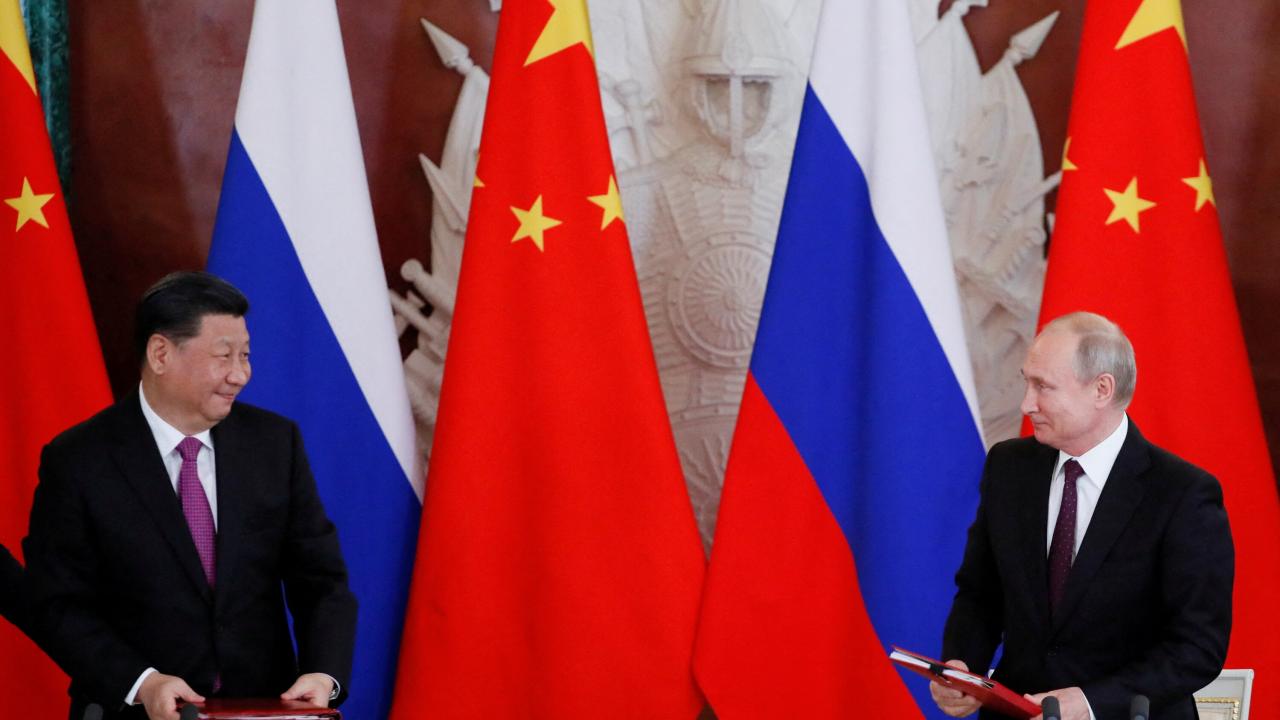
The burgeoning military partnership between Russia and China presents a complex and evolving challenge to global security. While framed by both nations as a response to perceived Western hegemony, the deepening military cooperation raises significant concerns about regional stability and the potential for escalation. This partnership goes beyond simple arms deals; it involves joint military exercises, technological collaboration, and increasingly intertwined strategic objectives.
The “wrecking ball” effect, in this context, manifests as a destabilizing force that disrupts existing power balances and challenges established security architectures.The potential military implications of the Russia-China partnership are substantial and multifaceted. The combined military might of these two nations represents a significant challenge to the United States and its allies. Their strategic convergence in areas like advanced weaponry, cyber warfare capabilities, and space technology creates a formidable adversary capable of projecting power globally.
This collaborative threat is particularly acute in regions where both nations have overlapping interests, such as the Indo-Pacific and Eastern Europe.
Military Cooperation and Strategic Significance
The military cooperation between China and Russia is characterized by a growing frequency and complexity of joint military exercises. These exercises, often conducted in strategically sensitive regions, serve to enhance interoperability, test new technologies, and signal a united front against perceived adversaries. For example, the joint naval exercises in the Sea of Japan and the Pacific Ocean demonstrate their growing ability to conduct coordinated operations in contested waters.
The sharing of military technology, including advanced weaponry and intelligence, further strengthens their capabilities and reduces reliance on Western suppliers. This technological exchange allows both nations to leverage each other’s strengths, accelerating their military modernization efforts. The joint development of advanced weaponry systems represents a particularly significant threat, potentially leading to a new arms race.
Security Threats Arising from the Partnership
The “wrecking ball” dynamic inherent in the Russia-China relationship poses several distinct security threats. The increased military cooperation between these two powers could embolden them to undertake more assertive actions in regions of strategic importance, potentially leading to increased tensions and even armed conflict. Their combined naval power in the Indo-Pacific poses a direct challenge to the U.S. Navy’s dominance, while their growing influence in the Arctic region could destabilize the fragile geopolitical balance in that area.
The potential for joint cyberattacks or information warfare campaigns also presents a significant threat to global security infrastructure and national sovereignty.
Impact on Regional and Global Stability
The deepening military ties between Russia and China significantly impact regional and global stability. In the Indo-Pacific, the partnership challenges the existing security architecture and could lead to an escalation of tensions with countries like Japan, South Korea, and Taiwan. In Europe, Russia’s aggression in Ukraine, tacitly supported by China’s refusal to condemn it, has created a volatile security environment.
The global implications are equally profound, as the partnership could lead to a new era of great power competition, potentially undermining international norms and institutions. The combined economic and military power of Russia and China creates a situation where established global order is increasingly challenged. This challenges the existing international order and increases the likelihood of conflict.
The “China uses Russia as a wrecking ball” metaphor, while provocative, highlights a crucial aspect of the evolving geopolitical landscape. China’s relationship with Russia is far from straightforward; it’s a calculated risk with potential rewards and significant drawbacks. While China undoubtedly benefits from Russia’s actions in certain areas, the long-term consequences remain uncertain. The global community watches this dynamic closely, constantly reassessing its implications for international stability and the future of global power.
Understanding the nuances of this relationship is crucial to navigating the complexities of the 21st-century world order.

